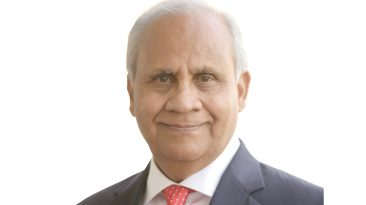The days of assurances, good intent and fashionable and symbolic demonstration of gestures are over. The new challenge is "How much you care for me."
Author - Dr. Anil K. Khandelwal
![]() Dr. Khandelwal (PhD in management) is a well-known transformational leader of India who is credited with the transformation of one of the largest public sector banks- Bank of Baroda having 38k employees in just three years (2005-2008) from decline to most powerful and valuable brand during his tenure. His brand of leadership is based on building Intangibles like culture, people, brand, governance, leadership and technology. He had a long stint in Personnel and IR.
Dr. Khandelwal (PhD in management) is a well-known transformational leader of India who is credited with the transformation of one of the largest public sector banks- Bank of Baroda having 38k employees in just three years (2005-2008) from decline to most powerful and valuable brand during his tenure. His brand of leadership is based on building Intangibles like culture, people, brand, governance, leadership and technology. He had a long stint in Personnel and IR.
Dr. Khandelwal is a prolific writer and has authored/edited eight books. His best-selling book - Dare to Lead is one of the most authentic narrations of his transformative interventions. The Bank of Baroda transformation story has been extensively written about by the academics and has found place in articles on leadership in India, mentioned in Harvard Business Review articles. Leading Management institutes like IIM Ahmedabad and Bangalore have written case studies on the transformation of Bank of Baroda during his time. His another best- selling book is- Chess Master or Gardener.
He also chaired a committee on HR in Public sector banks, popularly known as Khandelwal committee.
He is a multi-awarded leader having received Asian Banker, Singapore's highest honour, Life time achievement award for leadership in the financial sector, the only Indian to have received this honour so far. He is also a recipient of Life time achievement award from National HRD Network, India for his contribution to HR profession. Economic Times has rated him among the 100 most powerful CEOs of India consecutively for three years. His brand of leadership and the work is globally recognised.
He is on the Board of SBIL, Kolkata and also on the central training committee of SBI.
The need for an integrated transformation, particularly in areas of culture, talent, and HR area is long over-due. Coincidently, such a transformation will not only alleviate many of the legacy challenges, but will also prepare PSBs towards the emerging future of banking, which is likely to be...





